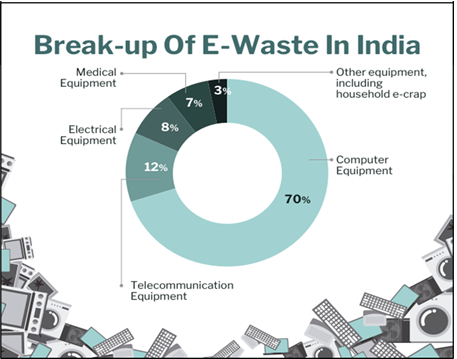PREVIOUS
India’s E-Waste Crisis 2025
October 6 , 2025
14 hrs 0 min
22
0
- India generated 2.2 million tonnes of e-waste in 2025 with a 150% increase since 2017–18.
- It becomes the third-largest global producer after China and the US.
- Over half of this e-waste is handled informally using unsafe methods like open burning and acid leaching, releasing harmful toxins into the environment.
- Key urban recycling hotspots include Delhi (Seelampur, Mustafabad), Moradabad (Uttar Pradesh), and Bhiwandi (Maharashtra).
- Informal recycling releases toxic substances like lead, mercury, and harmful particulate matter.
- Pollution levels in some recycling zones exceed 12 times the WHO’s safe limits for air quality.
- Toxic exposure causes severe health issues: respiratory illnesses, neurological damage (especially in children), skin disorders, and genetic harm.
- Despite the 2022 E-Waste Management Rules, enforcement lags, with only 43% of e-waste formally recycled as of 2023-24.

Leave a Reply
Your Comment is awaiting moderation.


